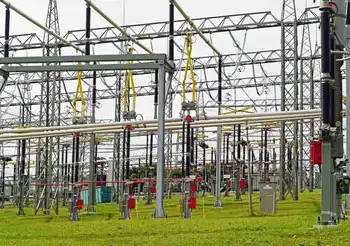Energy industry demands more funding for carbon storage
By Industrial Info Resources
Electrical Testing & Commissioning of Power Systems
Our customized live online or in‑person group training can be delivered to your staff at your location.

- Live Online
- 12 hours Instructor-led
- Group Training Available
The manifesto, titled "Carbon Capture and Storage — building a low carbon economy," calls for more financial backing from the government to speed up the development of large-scale CCS solutions that can be rolled out on a commercial basis. The government has agreed to support up to four CCS pilots around the country, but the technology is in its infancy, and the energy sector and the government have locked horns over who will foot the bill.
With the UK government now refusing to give planning permission to build any new fossil-fuel power plants without a CCS commitment, frustrated energy suppliers are demanding more government support for CCS.
The CCSA is making two key demands of government, stating in the manifesto: "In order for industry to commit to building these power plants now — which will have a lifespan of 30 years or more — it needs two commitments from governments, at national and continental level.
"First, industry needs a firm policy and regulatory framework within which to plan and invest. It will not commit large sums going forward without the confidence that this framework is stable and long term.
"Second, it needs financial support to support early large scale operations and to begin to build the infrastructure that will service this new generation of power stations and industrial sites. While CCS technologies are proven, in scaling up any technology there is a great deal of 'learning by doing.' ...The industry needs support and commitment from governments for the initial 'Phase One' projects."
In the foreword of the manifesto, former Shell chairman Lord Oxburgh writes: "CCS is not an unproven technology. It is in operation in plants around the world. But today, we need to step up to a new level. We must scale up the technologies from today's limited number of small plants to widespread implementation around the globe. This presents a number of challenges, mainly practical engineering issues associated with the scale of the task but also regulatory issues. Some of these need Government intervention and even international support.... However, early movers in implementing any technology have to bear significant technical and financial risk. The Government needs to share that risk in the anticipation of the clear benefits that widespread deployment of CCS will bring to society as a whole."
The call from the CCSA, which represents most of major energy companies, echoes recent statements from E.ON AG, which have criticized the lack of government funding for CCS. E.ON recently awarded the contracts for its CCS project at the controversial Kingsnorth coal-fired power plant in Kent, in southeast England.
The UK is now seen as the leading driver for CCS technology in Europe following last month's U-turn decision by Germany's government to postpone passing a vital carbon-storage law.











